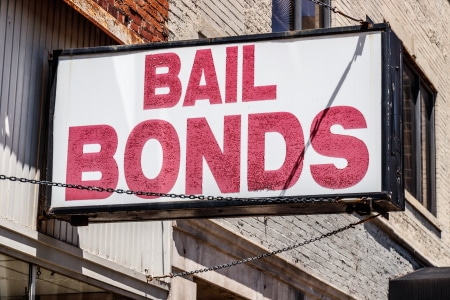After being arrested, you will be taken before a judge who will address the topic of bond. Typically, you will receive a public defender if you have not retained a Colorado Springs criminal lawyer. Nevertheless, it would be a better idea to retain a private and experienced Colorado Springs criminal attorney if you will be turning yourself in. This will allow your private attorney to be present with you during your bond hearing.
Your attorney will be able to argue the conditions of your bond on your behalf.
What Are Bail Bonds?

This fee will allow the defendant to be released from jail while they are awaiting their day in court.
Sometimes it will be days or even weeks or months before their court date, bail allows these people to go about their daily lives until their court date arrives. Bail can be posted by the defendant in jail, their family members or anyone willing to pay the considerable price of the fee.
If the cost of bail is too much for the individual to pay out of pocket, you can also use a bail bonds company to pay this bail for your release. Bail bonds agencies will provide you with the funds to cover most of the cost of bail by charging you a fee, typically 15% of the bond amount.
If you use a bail bonds company to post your bail, you will have to come up with 10% of the total bail amount, and the bail bondsman will basically finance the remaining 90%.
If you skip bail, that is if you don’t show up on your court date, then you will lose all money you personally put up for bail.
Bond Amount
The amount you will need to cover your bond is set by the judge and is based on a variety of conditions including your criminal record, threat to the general public, connections in the community and flight risk. The court should also consider your personal capacity to pay the bond.
Your criminal lawyer will be there to present arguments in your favor based on all the considerations mentioned above and attempt to lower your bond amount as much as possible.
Five Types Of Bail Bonds In Colorado
In the state of Colorado, there are five different types of bail bonds that a person can buy. Here is what you need to know:
- Cash Bail — The offender is required to give the court a certain amount of bail in cash.
- Surety Bond —in this process, an insurance company will present a guarantee indicating that assets are equal to the amount of bail being posted.
- Property Bond —in this case, property is presented to the court in place of cash.
- Release On Personal Recognizance: — this is a release program where the applicant guarantees their own return to court and is released without the need for paying cash.
- Release On Citation —in this situation the arresting officer can order the offender released by presenting a citation that the offender will be present for their court date at a specified time.
Conditions of Bond
In addition to paying bond, the judge may also impose court orders, which are also called “bond conditions”. Some of these conditions include:
- The defendant may not leave the State of Colorado while the case is pending.
- The defendant will be monitored by pretrial services,
- The defendant may not communicate with victims or witnesses in the case, or
- Any other condition the judge thinks appropriate to the nature of the case.
- Violation of any of the conditions of bond will result in the defendant being remanded to custody.
Violation Of Bail Bond
Violating the conditions of bond is considered a class 3 misdemeanor but can also be considered a class 6 felony. The specifics of the violation will determine the classification.
No matter the classification of the violation of bail bond conditions, violating bail bonds will result in a mandatory sentence of 6 months in jail.
NEED LEGAL HELP?
Contact Us Now!
